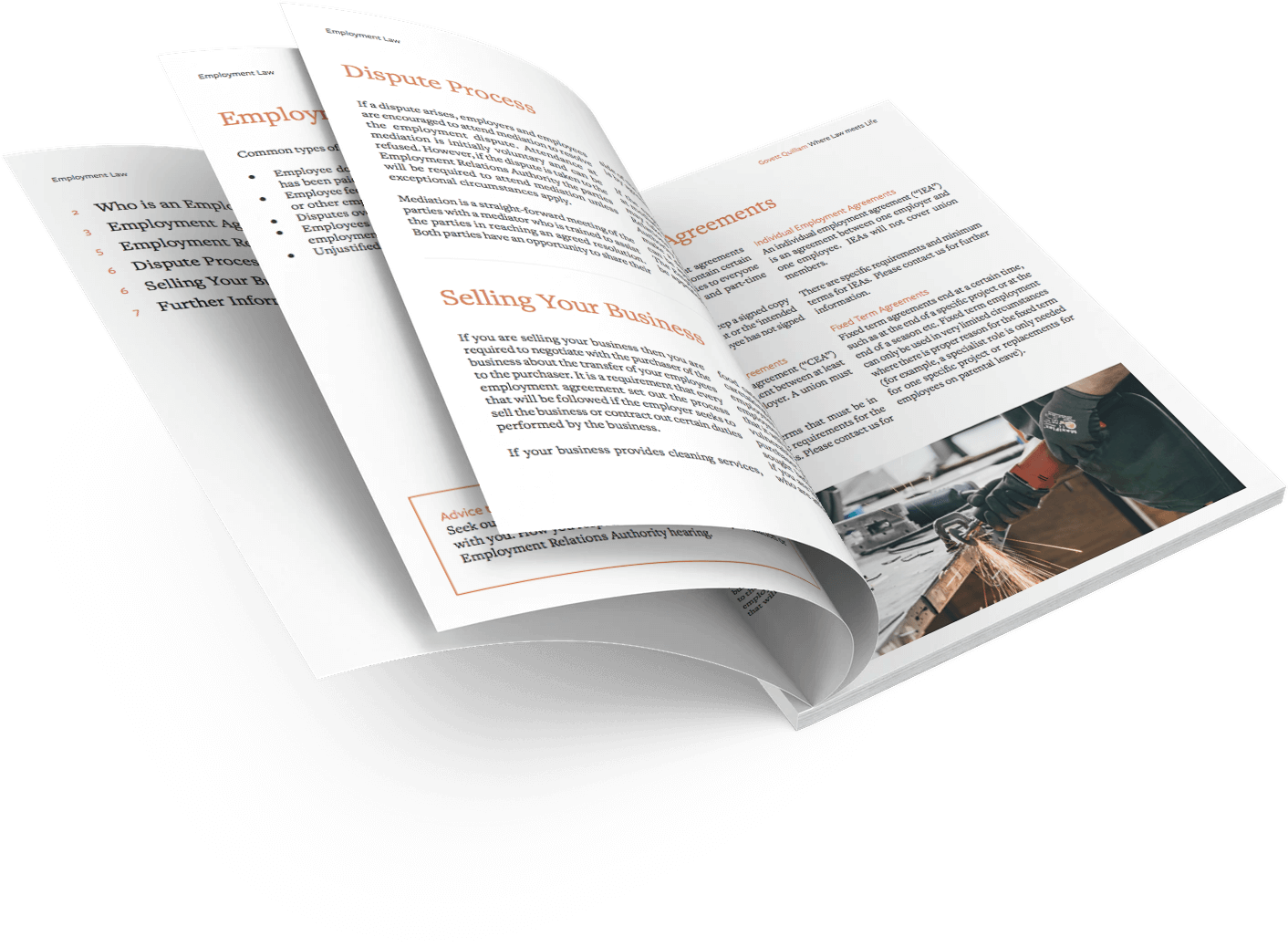
As vaccination rates have become a near daily obsession, employers continue to consider the various legal rights and obligations that intersect at our workplaces.
Author: Troy Wano
There appears also to be a growing awareness, in my view at least, that this is an issue that may only become clearer through the Courts.
As the Government has regularly reminded us from the time of the first Covid-19 related lockdown, in late March 2020, employment law remains largely unaffected by this unexpected and global event. That, initially, was at a time when the country’s employers were grappling with wage subsidies and potential restructuring.
The delta variant has changed this landscape, and focused attention on the national rates of vaccination, as it has becomes more evident that a certain level of nationwide vaccinations (a somewhat unknown quantity at this time) may lead to something resembling normal (at least normal in the context of a global pandemic).
The Legal Background
When it comes to the question of whether a no-jab-no-job response by employers is justified, this needs to be viewed against the background of the current law.
Specifically, in the case of vaccinations, that includes the Bill of Rights and Human Rights legislation, health and safety obligations, privacy law and employment law obligations.
One of the most fundamental rights we have is the right to refuse to undergo medical treatment, which, in this case, would include vaccinations. Discrimination laws protect those who, for example, choose not to be vaccinated.
Privacy laws operate to protect the disclosure of personal information, which may include information related to an employee’s vaccination status.
Health and safety obligations are imposed on, amongst others, employers, who are required to provide safe workplaces.
In addition, employment law imposes numerous obligations, including an obligation of good faith. Good faith involves, amongst other factors, providing sufficient information for employees to be able to understand a proposal and having an opportunity to respond when it comes to a decision that might result in the loss of employment.
When government officials and legal experts say mandatory vaccinations need to be assessed in the context of current law, it is the above matrix of considerations that are at play. Understandably, employers considering mandatory vaccinations in the workplace have been cautioned to tread carefully.
In regard to the appointment of new employees the issue appears relatively straightforward in that an employer can impose any reasonable condition as a prerequisite for employment, provided it does not discriminate under the Human Rights Act.
The question around mandating vaccinations for current staff is more complicated.
Recent caselaw, offers some but not definitive guidance.
Vaccination and the Courts
In a decision of the Employment Relations Authority on 1 September 2021, the Authority found that the termination of the employment of a New Zealand Customs Service employee, dismissed after refusing to be vaccinated, was justified.
That dismissal followed the Covid-19 Public Health Response (Vaccinations) Order (“the Order”), which came into effect on 30 April 2021, which provided that certain employees – being those working at MIQ and border facilities – could not continue working in their roles without being vaccinated.
The Authority accepted that in this case Customs had followed a proper process, including exploring the reasons for the employee’s refusal to be vaccinated and allowing numerous opportunities to respond, and also in its risk assessment and the review it undertook of that assessment with the affected staff member and other employees. The Authority further viewed that Customs had every right, in this particular set of circumstances, to require its staff to be vaccinated given also that it is a public agency with a responsibility to be guided by government directives.
However, that the agency was subject to the Order means this decision may have limited value to most other employers considering mandatory vaccination of its staff.
For every other employer not subject to a government order, a comprehensive risk assessment (which would likely need to involve input from staff), as required by the Health and Safety at Work Act 2015, will likely be critical in justifying any vaccination requirement for any position.
It is also worth noting that the former Customs employee also unsuccessfully challenged the Order in the High Court, in a decision dated 24 September 2021. The High Court explained that its task was to balance the benefit of the vaccine and the risk of being unvaccinated against any discrimination in relation to those affected. It held:
“..to the extent that requiring affected workers to be vaccinated before carrying certain duties might amount to discrimination, the benefits of that requirement outweigh any discrimination and that the limitation is proportional and demonstrably justified.”
The above quote underlines the balancing act required in cases like this, and may explain why, up until this point at least, there is reluctance on the part of the Government, aside from the Order, to be more declaratory.
That reluctance appears to have been underlined by Grant Robertson’s recent comment that moving to mandating vaccinations is not the New Zealand way.
Assessing Risk
Notably though, in the Authority proceedings (which may well be the subject of an appeal) the decision also referred to Customs’ risk assessment, as it had relied on its own health and safety risk assessment as well as the Order.
In this regard Worksafe have offered some very broad guidelines around a risk assessment and these largely involve an assessment of the risk of a person in a particular role getting Covid, and the consequences that may result if they pass the virus on. As its website currently states:
“If your risk ratings tend toward higher risk and you are not able to reduce that risk by implementing more controls, you and your employees should consider whether the work should be performed [sic] a vaccinated employee.”
It is that question around risk that will be key as to whether an employer’s assessment will be sufficiently robust, or not.
For example:
- Is simply employing public-facing staff posing a risk?
- Is that risk heightened for staff working in a care home, or a supermarket, or a hospital, or a school?
- Is the risk I am assessing, the risk of spread from my staff, or my customers?
- Is risk, in reality, confined to those working in MIQ and border facilities (as in the case of the Customs employee)?
- Do the Government lockdown levels (Levels 1 through to 4), indicate the level of actual risk a community (and its businesses) face? Similarly, do Auckland employers face a greater risk than those outside of the city?
- Is it relevant whether workplace transmission, to date, has been limited (if in fact that is the case)?
- Is the number of employees I employ a relevant consideration (i.e. risk may be elevated within larger workplaces)? Similarly, is the size of my workplace relevant?
- Is the practical application of other mitigation measures relevant?
- Am I obliged to follow any industry guidelines that might apply?
It would be a stretch to suggest that the Worksafe website addresses these considerations (or indeed that it was intended to address such considerations).
However, what the above mentioned statement from the Worksafe website does also suggest, that in addition to a risk assessment, employers would need to consider other safety measures. Staff should also be consulted through this process.
Air New Zealand’s recent proposal around mandatory vaccinations for staff may offer some guidance around both risk assessments and process.
Pilots, cabin crew, and other customer-facing employees of the airline were recently advised by the airline they would be required to be vaccinated. Airline management have indicated in the media that while other measures had been considered, ultimately mandatory vaccination may be the only option for certain groups of their staff.
Arguably though, customer-facing employees of an airline also requiring its customers to be vaccinated (which will apply to customers using Air New Zealand’s international network from 1 February 2022) is a high bar.
Ultimately though, in the absence of greater clarity from the Government, this is likely to be an issue determined further through the Courts.
Until then, we will all likely continue to monitor daily vaccination rates for a glimpse of light on the other side of this current Covid-19 tunnel.






.png)

